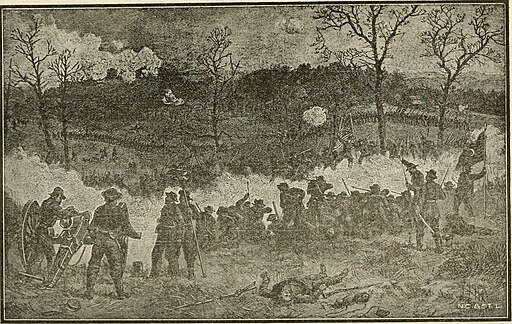
When I think of Thanksgiving, I seldom think of the Pilgrims and Wampanoag people dining together (likely sans turkey, stuffing, and pumpkin pie) in Massachusetts in 1621.
Rather, my thoughts wander to Abraham Lincoln’s 1863 proclamation inviting his fellow citizens “to set apart and observe the last Thursday of November next as a Day of Thanksgiving and Praise to our beneficent Father who dwelleth in the heavens.”
What was Lincoln thankful for? “Fruitful fields and healthful skies” … and Union victories at Gettysburg and Vicksburg.
“In the midst of a civil war of unequaled magnitude and severity, which has sometimes seemed to foreign states to invite and provoke their aggressions, peace has been preserved with all nations, order has been maintained, the laws have been respected and obeyed, and harmony has prevailed everywhere, except in the theater of military conflict; while that theater has been greatly contracted by the advancing armies and navies of the Union.”
Wartime Thanksgiving holidays are the rule, not the exception. As Christian Oord reports at War History Online, the United States has enjoyed a whopping 17 years of peace in its 247 years of existence. It’s been at war 93% of the time since 1776 (that article was written in 2019, but nothing’s changed in a big way since then).
America’s wars are seldom formally declared. Nor does the US regime always go whole hog — in many cases, it fights through proxies, arming, funding, and looming threateningly behind client states (as in Ukraine’s war with Russia and Israel’s war with the Palestinian Arabs).
I’m not thankful for America’s wars.
I suppose I SHOULD be thankful that it’s been more than two decades since those wars last came closer to my home in the form of major “blowback,” but I find it hard to dredge up much gratitude.
The deaths, injuries, and dispossessions caused partially or wholly by US foreign military adventurism — the toll comes to millions even if we write off everything prior to 9/11 — constitute a huge karmic debt, put on all our tabs in a perpetual dine-and-dash by the American political class.
We may not be noticeably paying that bill down now, but we’ll beyond doubt pay eventually, with interest … at which point the warmongers who brought the next terrible thing down on our heads will whine bitterly, from their secure bunkers in undisclosed locations, that the debt collectors “hate us for our freedom” and that the only solution is yet another round of war.
Is all that a little dark for a Thanksgiving column? Yeah, I guess so. But it’s where my thoughts are turning this week, which also marks 60 years since the assassination of John F. Kennedy, likely by elements of the very national security state that keeps the US constantly at war and its people constantly in danger.
I am, of course, thankful for my family, my friends, my readers, etc. And as the American holiday season kicks off, my wish for all of you is that ever-elusive goal: An America, and a world, at peace. Happy Thanksgiving.
Thomas L. Knapp (Twitter: @thomaslknapp) is director and senior news analyst at the William Lloyd Garrison Center for Libertarian Advocacy Journalism (thegarrisoncenter.org). He lives and works in north central Florida.
PUBLICATION/CITATION HISTORY


